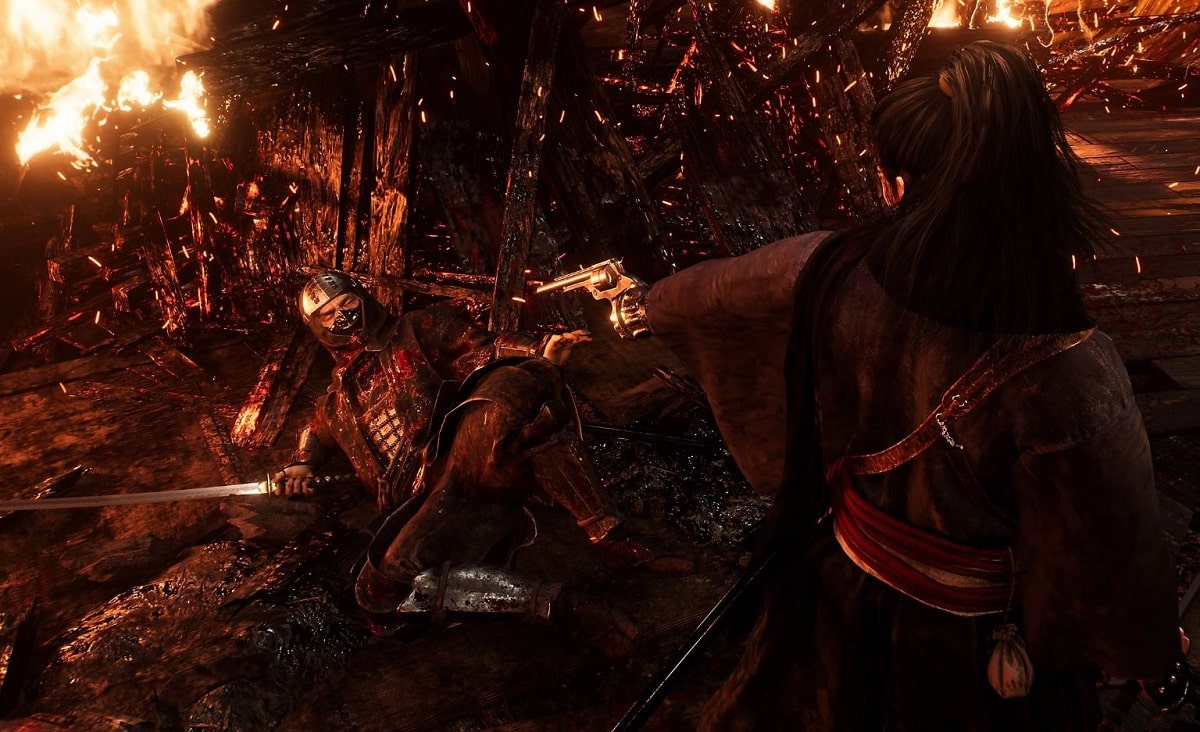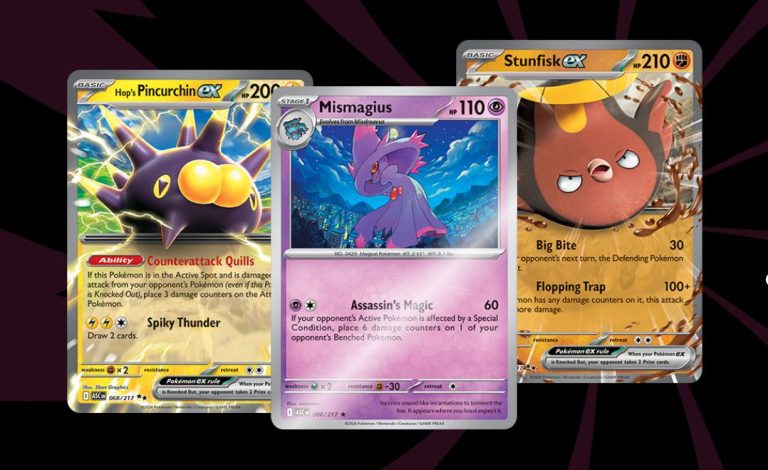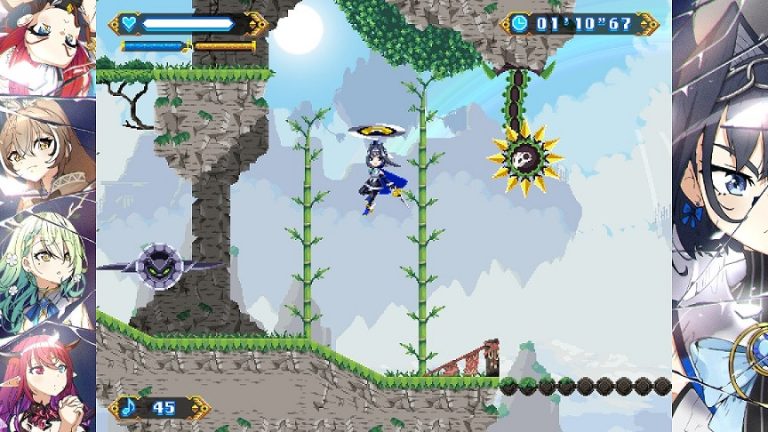Koei Tecmo and Team Ninja’s Rise of the Ronin released to generally positive yet lukewarm reception from overseas critics, with a number of reviews describing the historical RPG as “forgettable” or “unremarkable.” On the other hand, the game has been received with a lot more excitement domestically, and Japanese users are expressing an increasing distrust of video game Metacritic scores.
Rise of the Ronin was one of 2024’s highly anticipated releases, brought by the developers of Ninja Gaiden, Nioh and Wo Long: Fallen Dinasty. The open-world RPG reimagining of Japan’s turbulent Edo period had users worldwide hyped up for another Ghost of Tsushima-level samurai game. Ronin’s first critic review fueled this excitement further – as the Japanese game magazine Famitsu scored it at 37 out of 40, with critics praising the story, combat mechanics, immersive world and difficulty levels, albeit pointing out the slightly bland visuals.
On the other hand, Rise of the Ronin has a Metascore of 76 based on 112 critic reviews as of this writing, and while this is not a dramatically low score, it places the game in the 55th place among video games released this year, which is quite underwhelming. Japanese players have been voicing complaints about this score, commenting, “76 is way too low,” and “the Metascore is not to be trusted, anything under 80 for this level of game is absurd.” One player close to clearing the game remarked, “even when I subtract points for the complaints I have I’d still give the game around 90, I can’t agree with a Metascore of 76 after all.”

As opposed to its critic score, Rise of the Ronin’s aggregate user score is significantly higher at 8.5. Furthermore, this score has been showing an upward trend in the past few days, indicating that the game’s reception is improving as more players pick it up. This fact has inevitably drawn comparisons to Dragon’s Dogma 2, which released on the same day as Ronin. Dragon’s Dogma 2 is currently in the opposite situation, with a strong Metascore of 85 and a weaker user score of 6.2. While the game does deserve the praise it received from critics (although its release was followed by some microtransaction– and graphics- related controversy), some players believe that it was scored unfairly high in comparison to Ronin. One user who enjoyed both titles commented, “This has made me painfully aware of how unreliable Metascores are.”
Japanese players have also proposed that the real thrill of Rise of the Ronin may be somewhat lost on a player not informed about its historical and cultural context, as one user commented, “It’s kind of a shame that this game kind of ‘picks its players’ because it’s set in the Bakumatsu period. If it had been a common fantasy game, it would have sold a lot more.”
For Japanese players, Ronin is the equivalent of a French Revolution RPG, with personalities as impactful as Bonaparte making an appearance. But for an overseas audience, the magic may get lost in translation. Many Japanese users think this may be part of why Rise of the Ronin’s Metascore is as low as it is, as one user remarked, “The games Japanese people like and the games foreigners like are actually quite divided (…) so complaining about the low Metascore is kind of meaningless.”
As an aside, Rise of the Ronin sold 64,646 physical copies in Japan in its first week, following closely after Dragon’s Dogma 2, which sold 68,592 units during the same period.
Rise of the Ronin is available for the PS5.






I think part of it has to do with unfair comparisons and expectations. For example, in regards to time period, YouTube reviewer SkillUp observed that it was a similar time period as last year’s Like a Dragon: Ishin!!, which has a “more colorful” cast of characters and manner of story-telling. It’s a bit of an unfair comparison since the two are going for different tones. Similarly, I’ve seen people go in expecting, as noted, Ghost of Tsushima, but finding it’s less focused on a vibrant open-world and more on a more challenging combat.
In other words, it seems a lot of critics are knocking it down a notch more for what it’s not than what it is.
Either way, maybe Japanese players will start looking to user reviews as well, as is what many players in the West are focusing on more.
The problem is trusting Mainstream Journalists and Outlets in the first place or centralized sites like Metacritic. They always have been out of touch with the users especially if you look at this decade where they can easily be bought and paid for where the users tend to disagree with as a whole. The best course of action is to get away from any sites that are connected to Metacritic and give it to he hands of users who actually enjoy these kinds of games, have them review it and give criticism than have an outlet who hates anything that is not a movie game at the start and will review it poorly because the graphics are more important to them or complains about fanservice and things toned down behind the scenes for good reviews. These are the places which should not be given a review copy in the first place and do not have the users interest or Japan’s interests at heart.
Also the comment about what foreigners and Japanese people like is not really a good point. This has always been a fallacy due to the fact they trust gaming journalists who are against the users interests in the West and are only in gaming due to it’s popularity. But the users know this, in Japan they do not and every gaming corporation bows down before them.
Over there Japanese gaming Journalists actually do like games and play them in the mainstream and niche areas. Here in the mainstream it’s just nepotism of people who are family and know each other a friend of a friend. While the users are the genuine fans that will surprise you with their knowledge and understanding of games and their appreciation for them.
Japan needs to change its opinions in the gaming industry as a whole otherwise it risks losing users in favor of Mainstream reviews.
It’s also saddening when you see people make fun of Famitsu’s reviews and cling to the same old scores of titles they didn’t like when, unlike a lot of Western “Journalists”, they actually focus on review content related strictly to the game rather than unnecessary outside factors or building a nonsense narrative.
It’s a shame how out of touch the Metacritic score and usual outlets feel (not the first time) with Rise and the score got hit because of not only what is a distinct cultural difference in terms of taste, but obsession on graphics, photo realism style and, in this case, not being Ghost of Tsushima. I think it’s hurting the industry with this MC reliance.